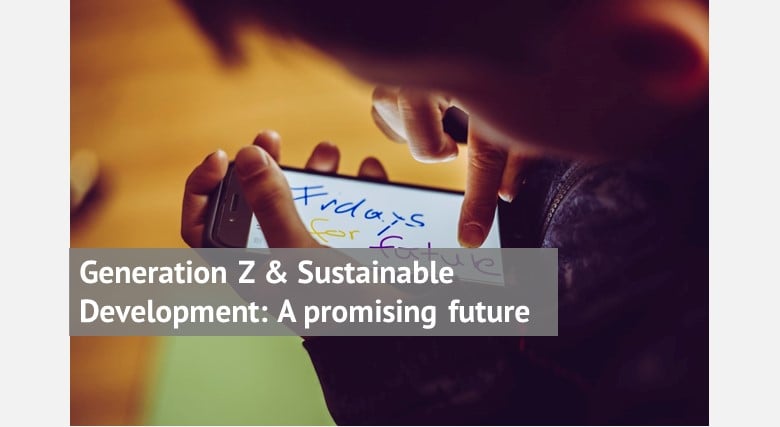During the last two year, the media has been obsessed with Greta Thunberg, a Swedish teenage environmental activist on climate change whose campaigning has gained international recognition. The unprecedented activism coming from a teenager says a lot not only about Greta herself but also about the generation she belongs to. Generation Z, or Gen Z for short, is a generation that has succeeded the Millennials and represents people born from 1995 to 2010. These young people have already proved they are able and ready to mobilize themselves for the causes they believe in. This generation values individual expression, avoids labels and believes profoundly in the efficacy of dialogue to solve conflicts and improve the world while relating to institutions in a highly analytical and pragmatic way. So, what are their views about sustainable development and factors that determine the realization of Sustainable Development Agenda?
Generation Z stand on sustainable development
The recent global climate strike that gathered hundreds of thousands of young people around the world to protest government inaction on the climate crisis shows that these young people have strong feelings about the environment and are ready to take a bold action to trigger the change. Moreover, they are now adding pressure for action in 2020 by demanding system change from world leaders and more accountability from carbon-intensive industries. Therefore, this activism showcases that Gen Z trust in governments, the media and big business to behave sustainably is relatively low. The survey that consulted nearly 5,000 Post-Millennials, aged 18-25, in 20 countries across the Middle East & North Africa, Europe, the Americas, Asia and Sub Saharan Africa about sustainability, has found that:
- Youth say climate change will be biggest threat to the world within a decade.
- Young people are keen to take on more responsibilities to find solutions to climate change.
- Government regulations are necessary, but youth want corporations to take equal responsibility.
- Youth are doing more to be ‘green’.
- Youth are prepared to boycott companies which are not sustainable.
- Behavioral change is needed to help renewable energy investment.
- Education is seen as critical in making the world more sustainable.
- Germany, Canada, the US and the UK are perceived as clean tech leaders – with Emirati youth confident in their own country’s green track record.
- Youth believe that solar and wind energy are priorities for the future.
- Young people in frontier countries (Jordan, Kenya and Nigeria) are more committed to creating a sustainable future.
These findings indicate that the Gen Zers are not only aware of the environmental issues the world is faced with but also, they consider the issues of poverty, inequality, unemployment and economy equally important and they view them as the ones that will grow increasingly relevant over their lifetimes.
Gen Zers’ call for companies to stick to sustainability
The awareness of the Gen Z about environmental, societal and economic issues is an emergency call to companies to transform their business model and integrate sustainability principles in their everyday operations and business strategy. Gen Zers are more ready than Millennials to act and take responsibility to correct mistakes made by previous generations and this implies that they can go so far to boycott companies which are not sustainable. Moreover, they are ready to leave differences aside to mobilize around causes they believe in and they view consumption through the ethical lenses. The attitudes and behaviors of Gen Z should be acknowledged by companies since this generation constitute their present and future customers.
What to expect from Gen Z in near future?
Activism, braveness, and awareness about the current global issues of Gen Z is a sign that this generation could be the one that can and will push the world towards a sustainable future. Their dissatisfaction with incremental changes that past generations have been made is evident; their demand for more fundamental and focused systematic changes prove that they strive for real change and not just empty promises. After all, they are the ones who will bear the brunt of all today’s global issues and they deserve a bright future.
Photo by Markus Spiske on Unsplash

